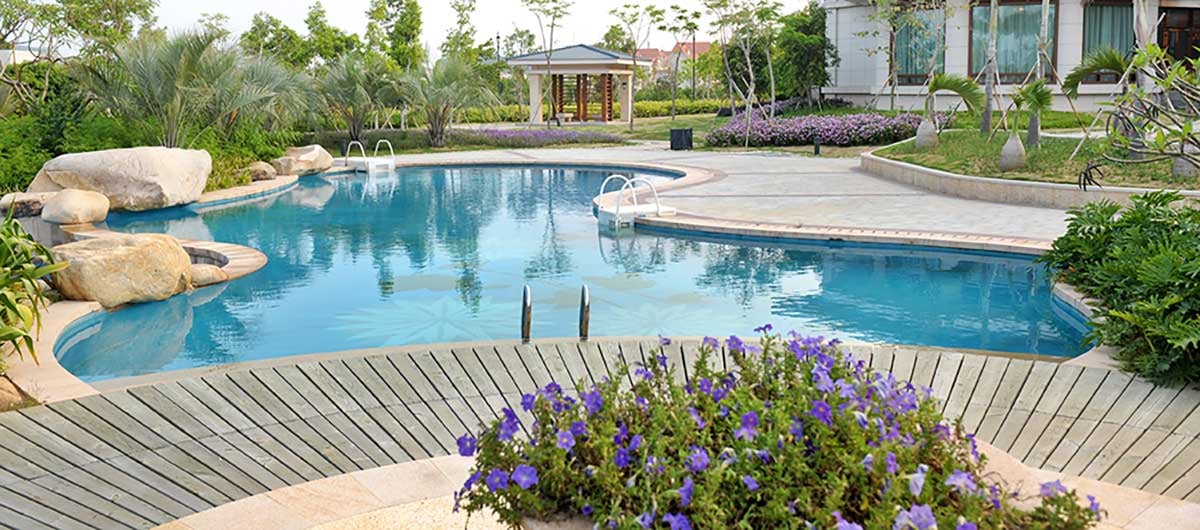Lounging by the pool and taking a dip can be very refreshing, especially when the temperatures are high. Homeowners Associations and Condominium Owners Associations provide this ultimate luxury amenity for prestigious homes and condos.
Pools are one of the most used and important amenities to homeowners, but with the COVID-19 pandemic, the rules around pool use have become more critical. Now more than ever, you need to keep your community safe but also to protect your HOA/COA board members from liability.
How then do you make everyone happy? Here are maintenance, compliance, and safety measures that you can put in place.
 Maintenance Costs, Concerns, and Safety Measures
Maintenance Costs, Concerns, and Safety Measures
It is important that you safely open your swimming pool and plan for maintenance in your budget. Put measures that will keep your community safe during the COVID-19 pandemic. For example, establishing a maximum number of people allowed to use the pool at a time will make sure crowds do not gather. Setting up pool time that people can reserve, having a disinfecting schedule, and pool reservation are some safety measures you can consider.
Plan for the regular pool maintenance, including draining the pool, cleaning equipment, and insurance. Consult professionals on the kind of drainage needed for your pool. Some pools may need partial drainage. You can perform full drainage after every three years, depending on your location and usage of the pool. This way you can save money. Check the credentials of any outside company that you hire to manage your pool. Make sure they are licensed professionals.
Plan and budget for expenses like chlorine, test kits, flex tubes, and first aid kits. Prepare well and budget for any emergency that may come up from time to time.
Pool Maintenance During Off-Season
Pool maintenance should be ongoing—when the pool is open and closed. Maintenance during off-season includes water treatment, draining the water, and covering the pool. Homeowners who may not want to pay when the pool is closed should be informed of these activities and encouraged to pay.
Prepare for Pool Reopening
Observe all the health guidelines and make sure you achieve social distancing to reduce the spread of COVID-19. Know the furniture and pool equipment that you have and where they are stored. This includes chairs, chlorinators, umbrellas, skimmer baskets, tables, and vacuum heads.
Furniture and equipment should be properly cleaned, sanitized, and safely stored away from weather elements. Installing an AED unit (Automated External Defibrillator) that can help you handle cardiac emergencies. Appoint people who can use it and make sure it is kept and maintained well.
Enforce Pool Rules and Communicate Effectively
Make sure residents understand that pool rules are not meant to make their lives miserable. Establish rules and communicate them effectively. Enforce the rules by making sure members of your community follow simple but essential pool guidelines. For example, people should not dive headfirst in the shallow waters, keep social distance and reserve their pool time. Other rules include not getting excessively rowdy and annoying other swimmers.
Check your Compliance Measures
Make sure your community pool is compliant with the relevant bodies. Find out if the pool needs to comply with the Americans with Disability Act (ADA). Public pools need to be ADA compliant. Check whether your pool is public or private. In most cases, HOA pools are private.
Make sure you have all the needed permits and certifications. Assign this responsibility to one person who will ensure operating permits for your swimming pool are filed each year. Filing your operating permit late can lead to additional fees and penalties. Find out if your community pool requires a lifeguard depending on the community size and the type of amenity.
Perform a Compliance Test
To ensure your community pool is compliant, your local department of health can do a compliance test and provide you with the reports. Reports can show you areas you need to work on and potential problems you can solve before opening the pool.
A pool is a relaxing place where you can cool off and unwind. It is essential to take additional measures to maintain it, make it safe and compliant for your community. At GrandManors, we deliver the most comprehensive on-site community management services. Contact us today for more information.
